Contact Me: howtopbestinfo@gmail.com
Contact Me: howtopbestinfo@gmail.com
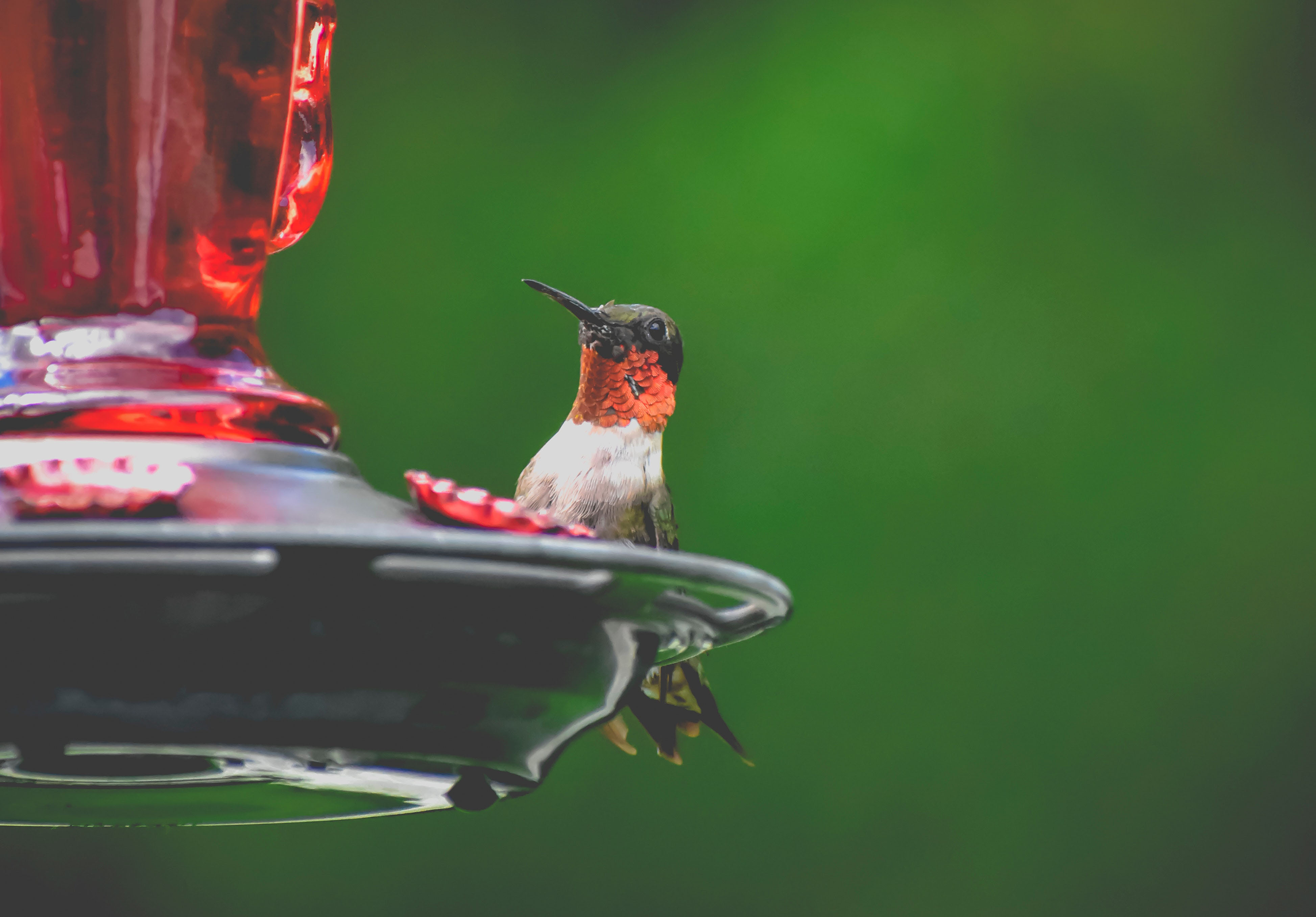
No-mess bird feeders are an innovative invention that helps to keep birds fed and your garden clean. They work by catching the husks, shells, or other bits of food from regular seed mixes before they end up scattered on the ground below.
The no mess design also prevents squirrels and larger animals from stealing all of a flock's hard earned meal!
This is possible because these special types of feeders have extra large perches with multiple entry points which allow smaller birds like sparrows access but keeps out bigger creatures such as pigeons who can't fit through them comfortably.
The benefits associated with this type of feeding station include less waste in gardens due to fewer seeds being spilled on the floor; more efficient use since only desired species get their meals while others don’t; better hygiene levels meaning there will be less bacteria build up around it than when using open bowls for example; plus many people find them aesthetically pleasing too so it adds some visual interest into one's outdoor space without compromising functionality at all!
Additionally, depending upon what material you choose (many come in metal mesh variations now) then even if left outside during bad weather conditions - these structures should still remain intact over time making maintenance much easier..
No-mess bird feeders are a great way to enjoy birds without having the mess associated with traditional seed or suet type feeders. Here are some tips on using no-mess bird feeders:
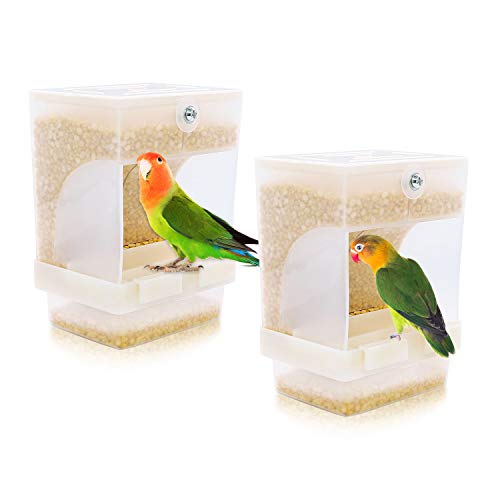
Best value overall, this is the greatest option for all buyers who want the best quality product.
Buy it on Amazon
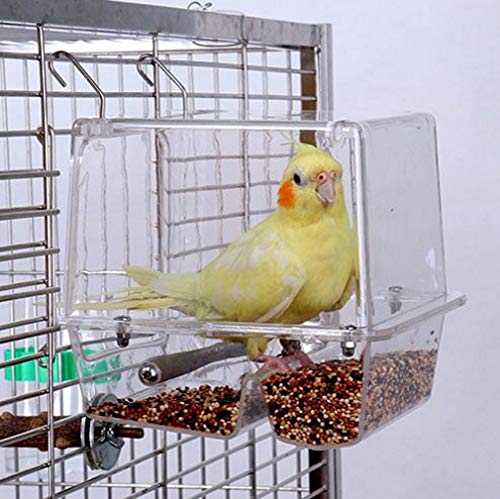
Also very good option for users who are serious about high standard and taste.
Buy it on Amazon
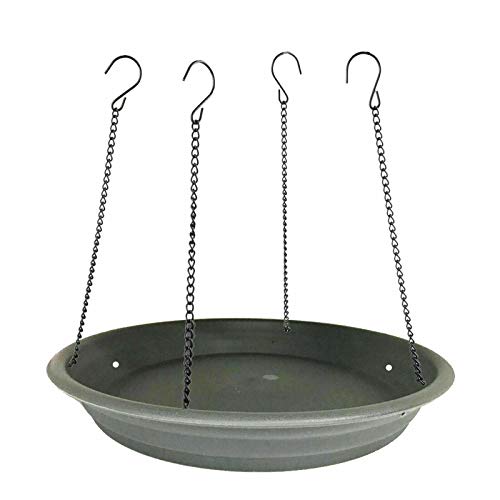
Strike a perfect balance between price and quality, this item is for people who want both.
Buy it on Amazon
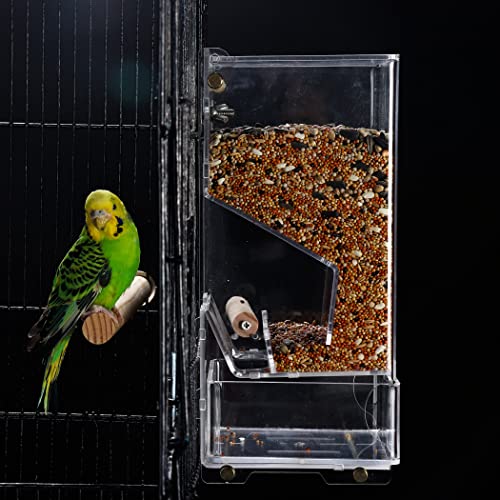
Perfect Alternative for products other than those mentioned above, give it a try!
Buy it on Amazon
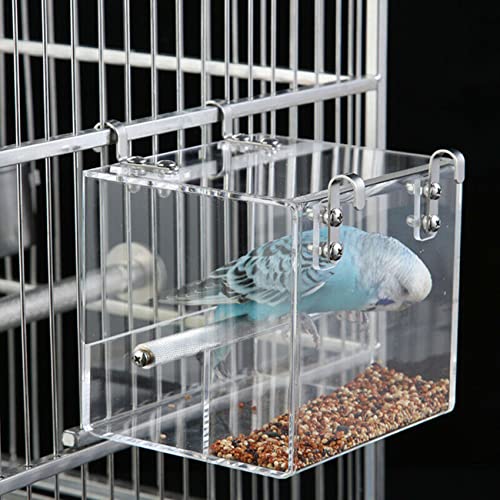
Affordable price and well accepted quality, great deal for who have a tighter budget.
Buy it on Amazon
No-mess bird feeders have been around for centuries and are a favorite among bird lovers. They provide an easy way to enjoy watching birds from the comfort of your own home, without having to deal with messy seed spills or other messes associated with traditional feeding methods.
The first no-mess bird feeder was invented in 17th century France by Pierre Belon who developed a special cage that kept out larger birds while still allowing smaller ones access to food inside it.
The original design evolved over time into more modern versions made of different materials such as plastic, metal, and wood which all had one thing in common – they were designed so there would be minimal mess left behind when used properly. As technology improved during the 19th century these designs became even better at keeping bigger pests away while ensuring small songbirds could benefit from their contents easily enough too - something early users didn’t realize until much later on!
Since then innovation has continued; today many models feature built-in perches for resting along with adjustable openings that make them suitable for multiple species sizes (or preferences).
Despite this progress though some people find themselves struggling due to unfamiliarity or lack of knowledge about how exactly these devices work best.
To sum up, no-mess bird feeders are a great investment for any avid birdwatcher. They provide easy access to food and water sources in your yard without having the unsightly mess that traditional feeders can create around them. Additionally, these types of feeders reduce waste from birds by preventing seed scatter or spillage which helps keep our environment clean and healthy for all outdoor wildlife species. Furthermore, they also help protect plants growing near where you place the feeder as well since there is less debris on the ground surrounding it providing more space for natural growth.

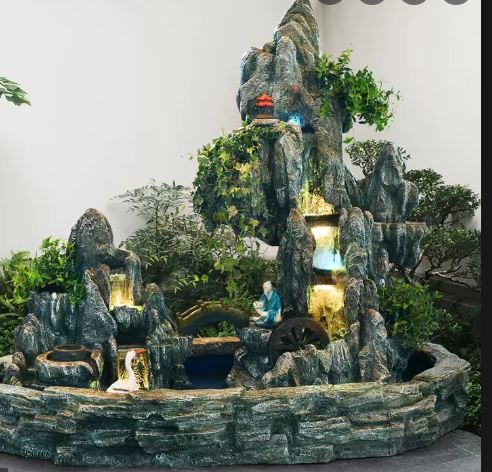
Etiam porta sem malesuada magna mollis euismod. Cras mattis consectetur purus sit amet fermentum. Aenean lacinia bibendum nulla sed consectetur.
2045-06-00 00:00:00.000000
2045-07-02 00:00:00.000000